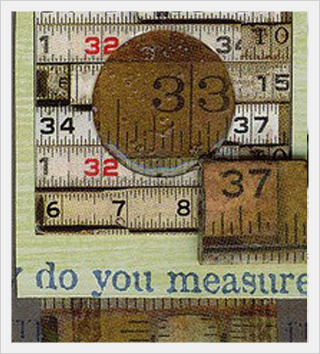 Like many businesses, you probably use some sort of ERP software or have developed your own in-house system for measuring success. But when it comes to environmental performance you might be like many others: stumped.
Like many businesses, you probably use some sort of ERP software or have developed your own in-house system for measuring success. But when it comes to environmental performance you might be like many others: stumped.
Environmental KPIs (Key Performance Indicators) are an entirely different beast than KPIs associated with finance, on-site incidents, or market growth. How you actually determine your environmental KPIs and know which ones to monitor are often more complex than other aspects of your business.
And guess what? Your most essential KPIs might not even be determined by you. They might already be decided by outside regulatory agencies or public opinion.
Even if a particular KPI doesn’t hold a lot of personal value to you (or the CEO), you might still be required to monitor it carefully.
So you might as well do an amazing job at it.
Your environmental performance – often tied in to sustainability – can be measured in many different ways, but here are the best environmental KPIs you should be tracking with your EMS, ERP, or KPI software.
Keep in mind that your specific industry might have some very specific KPIs you might be required to track, like VOCs for the chemical industry. These best practice KPIs, however, can really do any business a lot of good.
Greenhouse Gases
By far, the most buzz-worthy environmental KPI today is Greenhouse Gases (GHGs). The government, your stakeholders, and the public all want to know what your GHG situation is and how it got that way. GHGs aren’t difficult to track either, if you’re already tracking your air emissions from production or from your off-site activities (like flying across the country).
Energy Usage & Renewables
You might already be tracking your energy usage closely, since it is so tied in to your financial bottom line. However, don’t forget that energy use and utilities like water are also an essential part of your environmental performance. After all, that energy almost always comes from using up a natural resource.
We’ve even seen cases where tracking utilities from an environmental KPI point of view directly benefited the business’ accounting & financial performance.
While we’re on the topic, tracking your renewable energy use as a KPI is a great idea, since countless global businesses are now including renewable energy use as part of their public-facing sustainability planning.
Hazardous & Toxic Waste
It’s more than likely that if your business generates any sort of toxic waste, or any other type of waste that needs to get specially treated, you are already documenting it in some way.
At a minimum, you’re probably keeping clear records of how much you are shipping your waste off-site and how much it is costing you.
But what many companies forget it that you can use these types of waste as strong indicators of how your overall production line is performing, from the raw materials to the end product. High levels of hazardous waste are a good indication you’re processes aren’t as efficient at using raw material as they could be, or that your choice of raw materials could use some evaluating.
Non-Hazardous Waste
Established sustainability planning organizations, like the Global Reporting Initiative (GRI) are putting more emphasis on how much general consumer waste your company is responsible for. This includes the materials associated with what you ship in (like trucks full of wooden pallets) and what you ship out (like bulky plastic packaging on your finished product).
Take a look at almost any successful business, and you’ll see them bragging about how much recycled material their product uses or how much waste their product saves from going into landfills compared with the competition.
Why? Because this type of green marketing sells.
But you can’t tap into that until you’re taking the time to measure your waste output as a KPI. But here’s the thing: unlike many other KPIs, environmental performance KPIs give you the most benefit when they get shared. Shared across our entire company. Shared with your stakeholders. With your key decision makers. And with your consumers.
And that’s because this data makes great PR, moves product, and gets people on your side.
Plus, as an added bonus, the more aware you are of your environmental performance, the more likely you are to improve it.
(Image credit: Lainey Repetoire)
This Blog Was Co-Authored By:


Tags:
Environmental Management
June 27, 2012

Comments